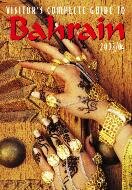|
|
 |
|||||
|
|
|||||||
 |
|||||||
|
|
|||||||
![]()
![]()
With Bahrain gaining in popularity as a tourist destination, many tour operators have begun offering package deals with charter flights and hotel stay. Check with your travel agent, there are some real bargains to be had!

Caption to come here
The luck of
the brave
By Y M Sreekrishna Bhat
Success follows those who dare. And if luck smilesÉthe sky is the limit.
From a small-town boy to an international banker, Iqbal Mamdani's story is of calculated risks and an unending desire to go further.
Being in the right place at the right time matters a lot in one's life, admits the founder of the Bahrain-based TAIB Bank.
Born into a family of entrepreneurs from India who migrated to East Africa in the early 1900s, his father was weaving a future for Iqbal in the family business.
The elder Mamdani saw a great opportunity for trading in Japanese products. But he felt handicapped by his lack of knowledge of the Japanese language.
And so while all his peers went West, 19-year-old Iqbal was sent to the Land of the Rising Son, to study economics and Japanese in Tokyo University, a 180 degree shift as Mamdani puts it.
As a young boy, Iqbal dreamed of becoming an international diplomat. And his global vision flowered in Tokyo and developed further when he went to the US for his Masters degree at the University of California in Berkley.
"It was in the early 1960s and those were the days when the Free Speech Movement was catching the imagination of young people in America. It was one of the most interesting times of my life," says Mamdani.
Even though his father wanted Mamdani to join the family business, as a youngster, he always admired the United Nations and dreamed of becoming a part of the global organisation one day.
So, while in Berkeley, when he was offered a job at the United Nations Development Programme, he thought his dream had come true. However, the love affair with international diplomacy was short-lived for the ambitious young man felt the UN was too big for individuals to grow. Before long, Mamdani returned to Africa to develop the family business.
But politics conspired with fate to change the course of his life's journey. Crisis hit when Idi Amins government targeted Asians and their businesses. The Mamdanis moved to the US.
The big break in Mamdani's career came when he was offered a job in American Express Bank as the head of its Japanese business worldwide. The Japanese he learnt in Tokyo had come as a major advantage to him in the opposite part of the world.
"Those were the days when the Japanese were beginning to enter the American market in a big way. Because I knew Japanese well, American Express gave me the job."
And so a new international banker was born. "I was very successful in developing the business and my career with the bank," says Mamdani.
After five years with the bank, Mamdani's career took another turn. With oil prices booming, many major American businesses started looking towards the Middle East. American Express too decided to set up a Middle East operation.
Mamdani's success as a banker and his religion he was one of the few Muslims with the bank at that time made him the perfect choice to head the Middle East operation in Bahrain.
Mamdani himself was not too sure about making the move from the Big Apple to the Pearl of the Gulf. He had concerns about issues like the quality of life and children's education.
Assured that he could come back in a year's time, the reluctant Mamdani landed in Bahrain in 1974. It is now 27 years since then and Bahrain has become home to Mamdani. The bond between him and its people is going strong.
As regional manager of American Express Bank, Mamdani set up its operations in various Middle East countries.
The innovator in Mamdani soon woke up. "I felt I should do something for myself. If I could be a successful banker for American Express, why not for myself?" Soon he was planning to set up his own bank.
"You must be crazy," his relatives and friends told him. But a confident Mamdani went ahead anyway.
He left American Express (which however retained him as an advisor) and secured a licence to set up a bank. He convinced Saudi investors to put up some money and thus TAIB Bank was born, with a capital of $10 million, in November 1979.
"It was difficult initially, but how many people can say they have founded a bank! I feel I have fulfilled a dream," says Mamdani.
The bank's capital has grown from $10m to $102m, the staff strength has gone up from 10 to 100 some 80 per cent of them Bahrainis.
Mamdani's own profile now reads: Vice-Chairman and CEO of Taib Bank; chairman of Taib Securities, New York; chairman of Taib Yatrim Bank, Istanbul; chairman of Taib Kazak Bank, Almaty; chairman of Taib Securities, Bahrain; chairman of Taib Securities, London; chairman of Trans-Arabian Development Company, Bahrain; director of Taib Capital Corporation, Bangalore; director of Diamond Trust Bank, Kenya, Uganda and Tanzania.
Mamdani puts great stress on his international outlook and the global presence of the bank. "I always wanted to be in an international atmosphere and that is where I am now. We have operations in countries as diverse as Kazhakstan, Turkey, India, the UK and US."
While his knowledge of Japanese and his religion may have helped Mamdani in his career, one of the key reasons for his success is his willingness to take risks.
"We (the family) were always entrepreneurial. I knew I could do it because I started American Express here. The potential for development was there."
Success has its own trappings of sacrifices and regrets.
"My biggest regret is sometimes I trusted people too much," says Mamdani. "You can read the balance sheet, analyse it, but at the end of the day you have to trust people. We all make mistakes. Success comes when we learn from them and make fewer mistakes."
Balancing family and work is very difficult. "When you are overcome with the desire to succeed, you neglect family and private life. When my daughters were growing up I was not there for them. However, now I have made up for it," says Mamdani, who has two daughters currently living in the US.
"When you are the founder of a bank, so much depends on you. People identify the bank with you and it's very difficult to separate private life from the job."
Wife Shelby, whom he met in Japan, has been very supportive of him through the years. She has also contributed in her own way towards the development of the Archaeological Society and the National Museum of Bahrain.
"I came to Bahrain when things had just started opening up and am a witness to the continuing growth of the countryÉand to be part of this has been a wonderful experience," says Mamdani.
He feels Bahrain has a great future. The country is opening up for foreign investment and competition. And competition is always good, for it increases productivity, says Mamdani.
"I am happy now for what I did. One should be happy inside and be able to sleep wellÉthat is what I do and that is the biggest blessing I have," he adds.
SUCCESS STORIES
" Abdulnabi Al Sho'ala
" Fahmi bin Ali Al Jowder
" Johnny Young
" Engin Turker
" Farouk Almoayyed
" Karlheinz Aumann
" Mohammed Buzizi
" Mohammed Dadabhai
" Ebrahim Al Dossary
" Haji Hassan
" Faisal Jawad
" Khalid Kanoo
" Saleh Al Kowary
" Iqbal Mamdani
" Akram Miknas
" Abdul Rahman Morshed
" Khamis Al Muqla
" Mustafa Al Sayed
" Jamil Wafa
" Khalid Al Zayani
Bahrain is gateway to
huge Mideast market
Centre of Gulf
banking universe
Sreekrishna Bhat, editor of Bahrain based web portal Trade Arabia, has years of international experience in journalism.
He has worked for the Gulf Daily News and Gulf Construction in Bahrain, The Times of India and Indian Express in India, and The National in Papua New Guinea.
Bhat, who prefers going by his last name, writes on a wide variety of subjects, including politics, places, people and industry.